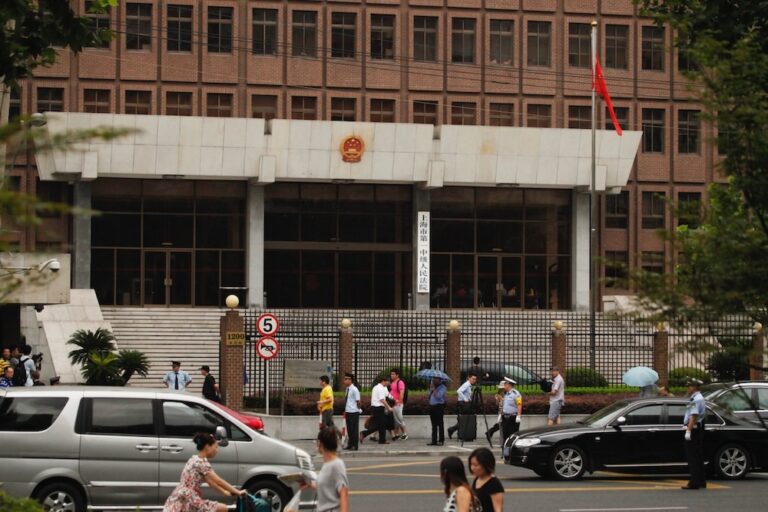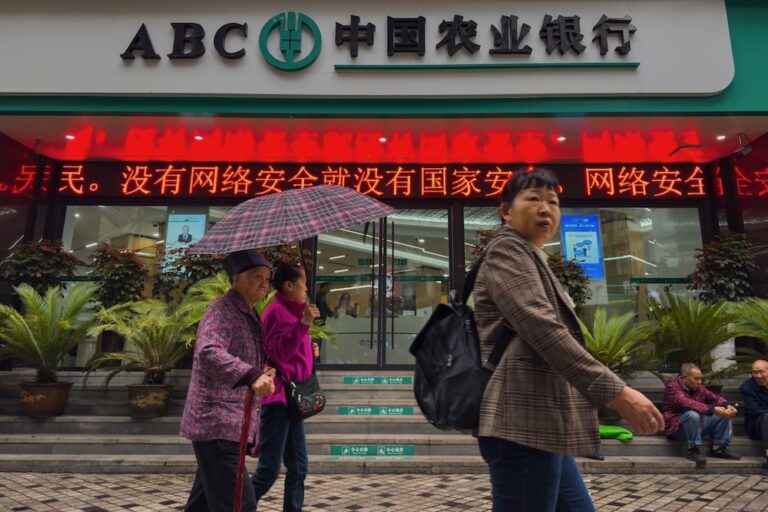Index on Censorship explains how the Chinese authorities censor domestic sites and how they censor the web outside China.
(Index on Censorship/IFEX) – August 9, 2012 – Even rainstorms can be sensitive in China. The recent storm in Beijing which killed at least 77 people caused the censors to come out in force, with newspapers told to can coverage and online accounts of the deluge snipped.
But with 500 million internet users, the obvious question is, how does China do it? What are the mechanics of China’s internet censorship?
It makes things simpler if we divide the censorship first into two camps: censoring the web outside China and censoring domestic sites.
American journalist James Fallows very readable account of how China censors the outside web explains: “Depending on how you look at it, the Chinese government’s attempt to rein in the internet is crude and slapdash or ingenious and well crafted.”
Briefly, this is what happens.
Censoring incoming web pages
The public security ministry is the main government body which oversees censorship of the outside internet through its Golden Shield Project.
The key to their control is the fact that unlike many other countries, China is only connected to the outside internet through three links (or choke points as Fallows calls them) – one via Japan in the Beijing-Tianjin-Qingdao area, one also via Japan in Shanghai and one in Guangzhou via Hong Kong. At each one of these choke points there is something called a “tapper” which copies each website request and incoming web page and sends it to a surveillance computer for checking. This means that browsing non-local websites in China can sometimes be frustratingly slow.
There are four ways for a surveillance computer to block your request.
* The DNS (Domain Name System) block: When you enter a web page, the DNS looks up the address of that page in computer language (the IP address). China has a list of IP addresses it blocks; if your web page is on that IP address, the DNS is instructed to give back a bad address and you will get a “site not found” error message.
* Connection Reset: Another the way the government prevents you seeing one of its blacklisted sites is not to return a bad address but to constantly reset the request, which is slightly more insidious since this kind of error can occur naturally. If it happened outside China you could press reset and the chances are the next time you would be successful. But in China the reset is intentional and however many times you resend the request you will get a “The connection has reset.”
* URL keyword block: To cast its net even wider, the tappers also check the web address. If it contains any banned words, say “Falun Gong” or “Dalai Lama” the request is sent into an infinite loop, you never reach the site and your connection times out.
* Content filtering: In this technique the content of web pages is scanned for banned words, with the connection timing out if any blacklisted words are found. This could for example, allow you to browse the Guardian website, but not access some of the new stories.
Censorship technology is continuously becoming more sophisticated, and words and IP addresses go on and off the blacklists.
Index contacted Jed Crandall, an assistant professor of computer science at the University of New Mexico and whose research has focused on Chinese internet censorship, to ask him if there had been much change to the above in the four years since Fallows’s article. Here’s what he said:
“It seems like filtering the content of the web pages using internet routers was not working well for the censors, and they even seemed to be devoting less resources to it over time as we did our experiments,” he told Index by email interview. “They still block IP addresses, DNS addresses, and do keyword filtering on GET requests [URL keyword block].”
Censoring domestic websites
Far more of a challenge to the Chinese government is keeping its homegrown internet in check. And this it does mostly by making sure the private companies that run most of the Chinese web self-censor by issuing threats, “vaguely-worded” laws and, in the case of emergency breaking stories, day-to-day directives.


